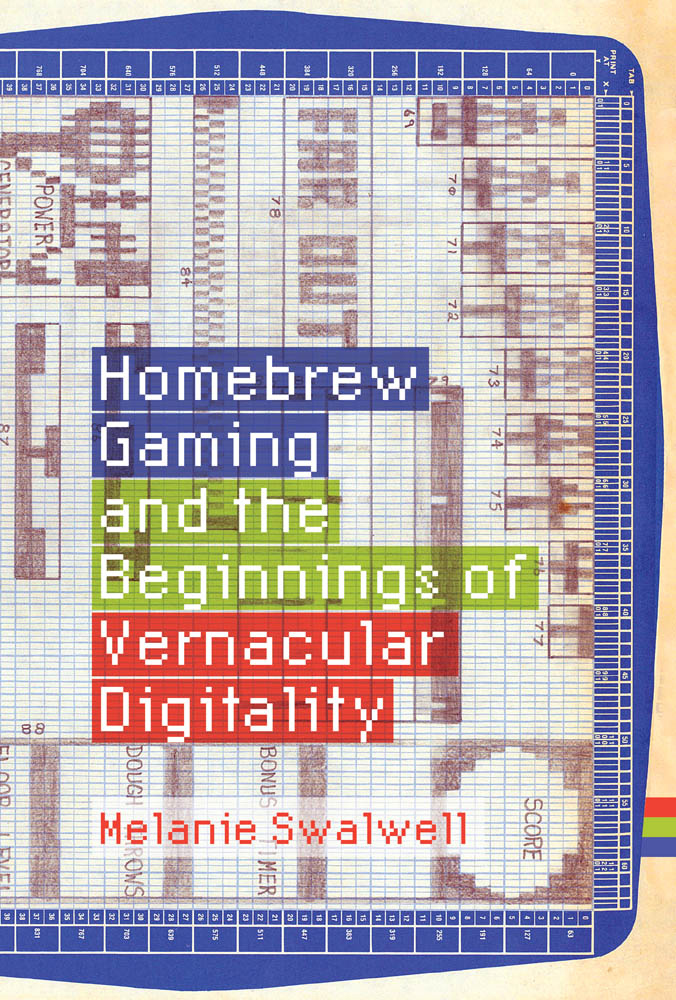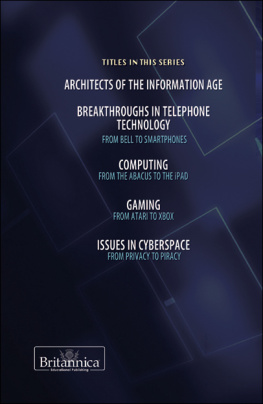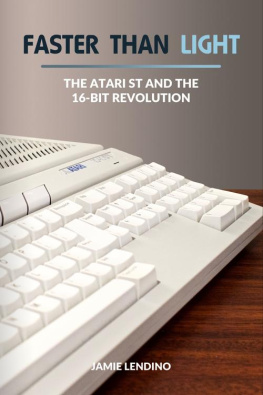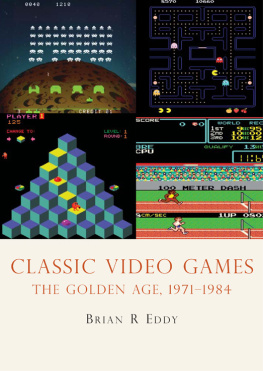Contents
Guide
Pagebreaks of the print version

Game Histories
edited by Henry Lowood and Raiford Guins
Debugging Game History: A Critical Lexicon, edited by Henry Lowood and Raiford Guins, 2016
Zones of Control: Perspectives on Wargaming, edited by Pat Harrigan and Matthew Kirschenbaum, 2016
Gaming the Iron Curtain: How Teenagers and Amateurs in Communist Czechoslovakia Claimed the Medium of Computer Games, Jaroslav velch, 2018
The Elusive Shift: How Role-Playing Games Forged Their Identity, Jon Peterson, 2020
Homebrew Gaming and the Beginnings of Vernacular Digitality, Melanie Swalwell, 2021
Homebrew Gaming and the Beginnings of Vernacular Digitality
Melanie Swalwell
The MIT Press
Cambridge, Massachusetts
London, England
2021 Massachusetts Institute of Technology
All rights reserved. No part of this book may be reproduced in any form by any electronic or mechanical means (including photocopying, recording, or information storage and retrieval) without permission in writing from the publisher.
Library of Congress Cataloging-in-Publication Data is available.
Names: Swalwell, Melanie, 1972- author.
Title: Homebrew gaming and the beginnings of vernacular digitality / Melanie Swalwell, The MIT Press.
Description: Cambridge : The MIT Press, 2021. | Series: Game histories | Includes bibliographical references and index.
Identifiers: LCCN 2020037102 | ISBN 9780262044776 (Hardcover)
Subjects: LCSH: Video games--Australia--History. | Video games--New Zealand--History. | Video games--Design--History. | Computer games--Australia--History. | Computer games--New Zealand--History. | Computer games--Design--History. | New media art. | Homebrew (Video games)
Classification: LCC GV1469.3 .S955 2021 | DDC 794.80994--dc23
LC record available at https://lccn.loc.gov/2020037102
d_r0
For Pearl
Our categories of knowledge are still too rustic and our analytic models too little elaborated to allow us to think the inventive proliferation of everyday practices. That is our regret. That there remains so much to understand about the innumerable ruses of the obscure heroes of the ephemeral, those walking in the city, inhabitants of neighbourhoods, readers and dreamers, the obscure Kitchen Women Nation, fills us with wonder.
Michel de Certeau and Luce Giard (1983)
Contents
List of Figures
Best-seller lists, Australian Microcomputer Magazine, vol. 1, no. 10, January 1984, pp. 5758. Computerworld. Collection of the State Library of NSW.
Australian radio celebrity John Laws advertising Commodore computers. Australian Commodore and Amiga Review, vol. 5, no. 2, February 1988, p. 11.
.)
.)
.)
.)
.)
.)
Wellington interislander ferry terminalThe space invaders machines came in for some heavy use at the Wellington ferry terminal building early yesterday morning when a group of Evans Bay Intermediate pupils turned up two hours early for a ferry sailing. Dominion Post Collection; Ref EP/1988/1725-F. Alexander Turnbull Library, Wellington, New Zealand.
.)
.)
Ad for Donut Dilemma published in Your Computer magazine. Courtesy of Nickolas Marentes.
.)
Donut Dilemma Level 2 screenshot. Courtesy of Nickolas Marentes.
Music and sound tables for Donut Dilemma (showing musical inspiration from Devo and Yazoo). Courtesy of Nickolas Marentes.
Donut Dilemma packaging, including instructions. Courtesy of Nickolas Marentes.
Mytek rip-off of Broderbund advertisement, highlighting the entrepreneurial message that was put out to homebrew software developers. Your Computer, vol. 3, no. 5, December 1983, p. 126. Collection of the State Library of NSW.
Broderbund Software Wanted advertisement. Antic: The Atari Resource, vol. 1, no. 3, August 1982, p. 6. Courtesy of James Capparell, publisher.
.)
.)
.)
Advertisement for the Microbee Experimenter, with robot tea-pouring arm, Your Computer, vol. 3, no. 5, December 1983, p. 105. Courtesy of Ewan Wordsworth, Microbee Technology. Collection of the State Library of NSW.
Advertisement for the Microbee Hackers Handbook in Online: The Microbee Owners Journal, October 1984, p. 40. Collection of the State Library of NSW.
.)
.)
.)
CroZXy Road chicken. Courtesy of Bob Smith.
Form rejection letter from Antic after reviewing Hot Copter. Courtesy of Harvey Kong Tin.
.)
Screenshot from Olympic Decathlon fix (2015) by Sarah W.
Series Foreword
What might histories of games tell us not only about the games themselves but also about the people who play and design them? We think that the most interesting answers to this question will have two characteristics. First, the authors of game histories who tell us the most about games will ask big questions. For example, how do gameplay and design change? In what ways is such change inflected by societal, cultural, and other factors? How do games change when they move from one cultural or historical context to another? These kinds of questions forge connections to other areas of game studies, as well as to history, cultural studies, and technology studies.
The second characteristic we seek in game-changing histories is a wide-ranging mix of qualities partially described by terms such as diversity, inclusiveness, and irony. Histories with these qualities deliver interplay of intentions, users, technologies, materials, places, and markets. Asking big questions and answering them in creative and astute ways strikes us as the best way to reach the goal of not an isolated, general history of games but rather of a body of game histories that will connect game studies to scholarship in a wide array of fields. The first step, of course, is producing those histories.
Game Histories is a series of books that we hope will provide a homeor maybe a launch padfor the growing international research community whose interest in game history rightly exceeds the celebratory and descriptive. In a line, the aim of the series is to help actualize critical historical study of games. Books in this series will exhibit acute attention to historiography and historical methodologies, while the series as a whole will encompass the wide-ranging subject matter we consider crucial for the relevance of historical game studies. We envisage an active series with output that will reshape how electronic and other kinds of games are understood, taught, and researched, as well as broaden the appeal of games for allied fields such as history of computing, history of science and technology, design history, design culture, material culture studies, cultural and social history, media history, new media studies, and science and technology studies.
The Game Histories series will welcome but not be limited to contributions in the following areas:
- Multidisciplinary methodological and theoretical approaches to the historical study of games.
- Social and cultural histories of play, people, places, and institutions of gaming.
- Epochal and contextual studies of significant periods influential to and formative of games and game history.
- Historical biography of key actors instrumental in game design, development, technology, and industry.
- Games and legal history.







